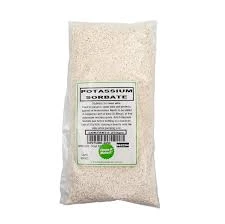
preservatives in soft drinks
The Role of Preservatives in Soft Drinks
Soft drinks are among the most widely consumed beverages in the world, characterized by their sweet flavors, fizziness, and variety of brands. However, a less celebrated aspect of this popular category is the use of preservatives, which play a crucial role in maintaining the quality and safety of these beverages. This article explores the types of preservatives commonly used in soft drinks, their functions, safety concerns, and the implications for consumers.
Types of Preservatives Used
Preservatives in soft drinks primarily serve to inhibit the growth of harmful microorganisms and extend the shelf life of the product. Some of the most common preservatives include
1. Benzoic Acid and Its Salts Benzoic acid, often used in its sodium or potassium salt forms, is a widely employed preservative in soft drinks. It is effective against bacteria, yeast, and mold, making it suitable for acidic beverages.
2. Sorbic Acid This preservative is particularly effective against molds and yeasts in slightly acidic environments. It is commonly found in fruit-flavored soft drinks and can be used in combination with other preservatives for enhanced efficacy.
3. Ascorbic Acid Also known as Vitamin C, ascorbic acid serves as both a preservative and an antioxidant. It helps prevent the oxidation of flavors and colors, maintaining the drink's freshness.
4. Potassium Sorbate This is a salt derived from sorbic acid and is widely used to prevent yeast and mold spoilage. It’s often found in a variety of soft drinks, especially low-alcohol beverages.
5. Sodium Metabisulfite Used more sparingly, this preservative is effective against wine spoilage and is sometimes found in soft drinks. It not only preserves flavor but also has antioxidant properties.
Functions of Preservatives
preservatives in soft drinks

The primary function of preservatives in soft drinks is to prevent spoilage caused by microbial growth. This is particularly important for products that are not pasteurized or that undergo little processing. Without preservatives, many soft drinks would have a significantly shorter shelf life, resulting in economic losses for manufacturers and potential safety risks for consumers.
In addition to microbial control, preservatives aid in maintaining the flavor and color of beverages. Oxidation can alter the taste and appearance of soft drinks, and the use of antioxidants like ascorbic acid minimizes these changes, ensuring that the product remains appealing to consumers over time.
Safety and Regulations
The safety of food additives, including preservatives, is a topic of ongoing discussion and research. Regulatory agencies, such as the U.S. Food and Drug Administration (FDA) and the European Food Safety Authority (EFSA), evaluate the safety of these substances before they can be used in food and beverages. Most preservatives used in soft drinks are considered safe at regulated levels, although some individuals may experience sensitivity or allergic reactions to certain compounds.
Consumer awareness has increased regarding food additives, leading some to avoid products with artificial preservatives. However, the presence of preservatives is often crucial for ensuring that products remain safe and enjoyable over their intended shelf life.
Implications for Consumers
For consumers, understanding the role of preservatives in soft drinks can impact purchasing decisions. Many brands now advertise themselves as “preservative-free” or “natural,” appealing to health-conscious buyers. However, it’s essential to recognize that the absence of preservatives does not inherently mean a product is healthier; it simply highlights a different approach to food safety and shelf life.
Consumers should also be aware of the balance between safety, quality, and taste. While preservatives are often necessary to ensure the longevity of a product, moderation in consumption is key. Soft drinks can be enjoyed as part of a balanced diet, but excessive consumption can lead to various health issues, such as obesity and dental problems.
Conclusion
Preservatives in soft drinks serve vital roles in ensuring product safety, quality, and longevity. While they often face scrutiny, when used appropriately, they can protect both manufacturers and consumers from potential spoilage and ensure that beverages remain enjoyable. As the beverage industry evolves, a continued dialogue about the use of preservatives will remain important, helping consumers make informed choices while enjoying their favorite drinks.
-
nitrile-rubber-honoring-strict-production-standardsNewsAug.22,2025
-
aspartame-ingredients-honoring-food-safety-valuesNewsAug.22,2025
-
fertilizer-for-balanced-plant-nutritionNewsAug.22,2025
-
cyanide-gold-processing-with-high-purity-additivesNewsAug.22,2025
-
formic-acid-in-textile-dyeing-applicationsNewsAug.22,2025
-
aluminum-hydroxide-gel-in-skincare-productsNewsAug.22,2025
-
Regulatory Compliance for Global Mining Chemicals UseNewsAug.12,2025
Hebei Tenger Chemical Technology Co., Ltd. focuses on the chemical industry and is committed to the export service of chemical raw materials.
-

view more DiethanolisopropanolamineIn the ever-growing field of chemical solutions, diethanolisopropanolamine (DEIPA) stands out as a versatile and important compound. Due to its unique chemical structure and properties, DEIPA is of interest to various industries including construction, personal care, and agriculture. -

view more TriisopropanolamineTriisopropanolamine (TIPA) alkanol amine substance, is a kind of alcohol amine compound with amino and alcohol hydroxyl, and because of its molecules contains both amino and hydroxyl. -

view more Tetramethyl Thiuram DisulfideTetramethyl thiuram disulfide, also known as TMTD, is a white to light-yellow powder with a distinct sulfur-like odor. It is soluble in organic solvents such as benzene, acetone, and ethyl acetate, making it highly versatile for use in different formulations. TMTD is known for its excellent vulcanization acceleration properties, which makes it a key ingredient in the production of rubber products. Additionally, it acts as an effective fungicide and bactericide, making it valuable in agricultural applications. Its high purity and stability ensure consistent performance, making it a preferred choice for manufacturers across various industries.





